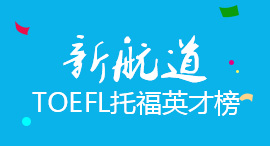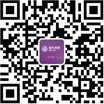你正在消失的能力(双语阅读)
托福阅读素材之你正在消失的能力:
1. Memorizing phone numbers
记电话号码的能力
It was a hassle remembering numbers. Now we simply add them to our contacts list. That usually works well unless our device is lost, stolen, or damaged. No one can be expected to remember all their contact numbers. What we can do is memorize 5 of our most important contact numbers. This should include a mixture of family, friends and business. If you’re really ambitious you can memorize 5 contacts for each category.
记数字是个麻烦,现在我们只需将11位的电话号码添加到联系人列表。如果我们的手机不出现丢失、被盗或损坏的情况,这种做法通常还很好用。没有人会记得所有的联系号码。我们能做的就是记住5个最重要的联系号码。应包括家庭、朋友和生意上的联系人的电话号码。如果你真的想自己记住电话号码,记住每个分组中的5个联系人即可。
2. Map reading skills
看地图的技能
The convenience and effectiveness of GPS guidance systems and digital maps generated by search engines is undeniable. They’ve definitely made our lives easier. What we don’t get from using these devices and applications are the increased ability to understand spatial orientation, representative symbolism, and navigation.
GPS导航系统和搜索引擎生成的数字地图,其便利性和有效性是不可否认的,确实使我们的生活变得更加轻松。我们的空间方向立体感、识别标志性符号的记忆力以及导航能力无法从使用这些设备和应用程序中得以增强。
To renew or acquire those skills, try using physical maps to plan your next trek. Whether it’s a long or short trip, take time to stop and safely chart your progress. After a few excursions, you’ll be pleasantly surprised with how efficient a tactile map can be.
为了更新或获得这些技能,你可以尝试使用实体的地图来规划你的下一个出行。不管是长期旅行还是短期旅行,找时间停下来规划一下安全前行路线图。规划几次短途旅行后,自己亲手规划的路线图其效率之高会让你有惊喜的感觉。
3. Photography
摄影技能
Even amateur photography required a rudimentary learning curve about lighting, depth, and composition. This was true for analog and digital photography. Most smart phone camera’s automatically make these adjustments. We no longer have to learn the art of photography. On most devices, this is easily rectified by turning off the automatic settings. Experiment with manually setting the scene modes, lighting, and zoom. You just may learn that you’re a “true Photog.”
甚至业余摄影需要对光度、深度和画面构图有个基本的了解,对于模拟摄影和数字摄影也同样需要了解。多数智能手机的自动相机会在摄影时有些调整。我们不再需要学习摄影技术。多数设备在关闭自动设置后也很容易调整。尝试手动设置场景模式、闪光灯和变焦,你会有自己是个“专业摄影师”的感觉。
4. Fact checking
核实事实的能力
Reference books and encyclopedias were once the gold standard for finding reference information. They provided peer reviewed and fact checked data on a vast array of subjects. They just aren’t as convenient and rapidly updated as search engines, digital reference materials, and databases. That said, the results of information derived from digital sources aren’t always reliable. Their information is limited by the review process. No one wants to be embarrassed by regurgitating false information. It’s taken time, but most people now realize that wiki retrieved data comes with a caveat. To make certain you’re disseminating factual information, make an effort to strictly utilize reputable and reliable sources.
参考书籍和百科全书曾一度是查找参考信息的黄金标准,它们对各科目的大量数据都经同行评议检查,只是用起来不如搜索引擎、数字参考资料和数据库方便而又更新快。也就是说,数字信息源的结果并非始终可靠,数字信息在审查过程中是有限的。谁也不想因照搬虚假信息而让自己处于尴尬境地。但现在多数人都意识到维基百科的检索数据手续繁琐而又很花时间。为保证你传播的信息真实可靠,尽量严格利用出处权威而又可靠的信息源。
5. Reading comprehension
阅读理解的能力
The primary culprits are E-readers. They’re convenient and can store thousands of books. There’s also evidence that their format makes it more difficult for users to retain and recall information they just read. Don’t worry, there’s no need to give up your e-reader! What we should do is make an effort to read printed books. This will be especially helpful when perusing information we need for academic or career purposes.
主要的罪魁祸首是电子阅读器。电子阅读器方便可以存储成千上万本书籍。也有证据表明电子阅读器的格式让用户更难记住并回忆起刚读过的信息。别担心!没有必要放弃你的电子书!我们应该做的是努力去阅读印刷书籍,仔细阅读学术或职业方面的信息特别有用。
6. Hand written correspondence
手写书信的能力
Writing letters and notes incorporated hand writing skills, organizational skills, and learning about the person or persons you correspond with. This is another easily regained skill. Send a letter to an old friend, relative or acquaintance.
写信和记笔记构成手写的写作能力、组织能力以及学习人与人之间的通信沟通交流能力。这是另一个容易重新掌握的技能。给老朋友、亲戚或熟人寄送一封亲笔信。
7. Conversations
对话能力
This one may seem counter-intuitive, especially considering how many people have smart phones, but it’s true! We actually use email and texts far more than we talk. The solution is self explanatory: take time make phone calls.
这个能力似乎是一种反直觉的能力,特别是考虑到大家都有智能手机,但这是真的!实际上我们使用电子邮件和短信的次数远远超过我们对话的次数。这个问题的解决方案不解自明:花些时间打打电话聊聊天就解决了。
8. Currency
使用现金的能力
Using coins and paper money requires fast arithmetic and accurate calculations. Sure debit cards are often more practical, but cash has its benefits. In addition keeping our calculating skills sharp, cash can actually be safer to use than debit cards. Use cash for purchases under ten dollars. While ostensibly debit cards are safer, they’re are susceptible to fraudulent practices such as skimming.
使用硬币和纸币需要快算和精算技能。当然通常借记卡更加实用,但现金也有现金的好处。除了可以保持我们计算能力的反应敏锐之外,实际上现金比借记卡使用起来安全。购买10美元以下的东西可以使用现金。虽然借记卡貌似更安全些,但借记卡容易遇到欺诈行为。
9. Walking
走路的能力
Distracted walking detracts from the observations and experience of walking. It can also be dangerous. Accidents can easily occur when we become immersed in text messages. An easy solution is to set observation goals for each trip. If it’s a routine walking commute, make a game of noting the changes, no matter how subtle, on your commute.
走路时看电子设备屏幕会让我们走路分心又危险,我们的注意力集中沉浸在手机短信上很容易发生交通事故。有个简单的解决方案就是规划好每段路程,规划出哪段路程适合翻看手机,如果是步行上下班的常规路程,无论多忙都要注意这点以免走路分心走神。
10. Expanding our knowledge base
拓宽知识面的能力
The convenience of nearly instantaneous information can easily become a crutch. If we’re not knowledgeable about certain subjects such as physics, politics, or music we know we can look it up online. That’s not necessarily a negative. What’s problematic is that we often look up and recite the information, but don’t actually absorb it. It may seem daunting, but this is arguably the easiest skill to revitalize. Whenever you reference an unfamiliar subject take time to actually learn the information.
人们几乎都很容易依赖瞬时信息。如果我们不了解某些学科如物理、政治、或音乐,我们都知道可以在网上查。这并不一定是负面的做法。问题在于我们经常查找信息并背诵信息,但实际上却并不吸收信息。这点似乎令人生畏,但可以说是恢复了一种最简单的技能。每当你引用一门自己并不是很熟悉的学科知识,实际上是在花时间学习这门学科的信息。
托福阅读课程中心
查看更多 >托福快讯
- 2018托福考试时间表已公布... 2018-33-04
- 2015年的托福考试快要结束... 2015-06-10
- 2019-52-07
- 不管你是不是英语专业的,... 2016-07-22
- 啃单词、练听力、梦里都在... 2016-41-03



